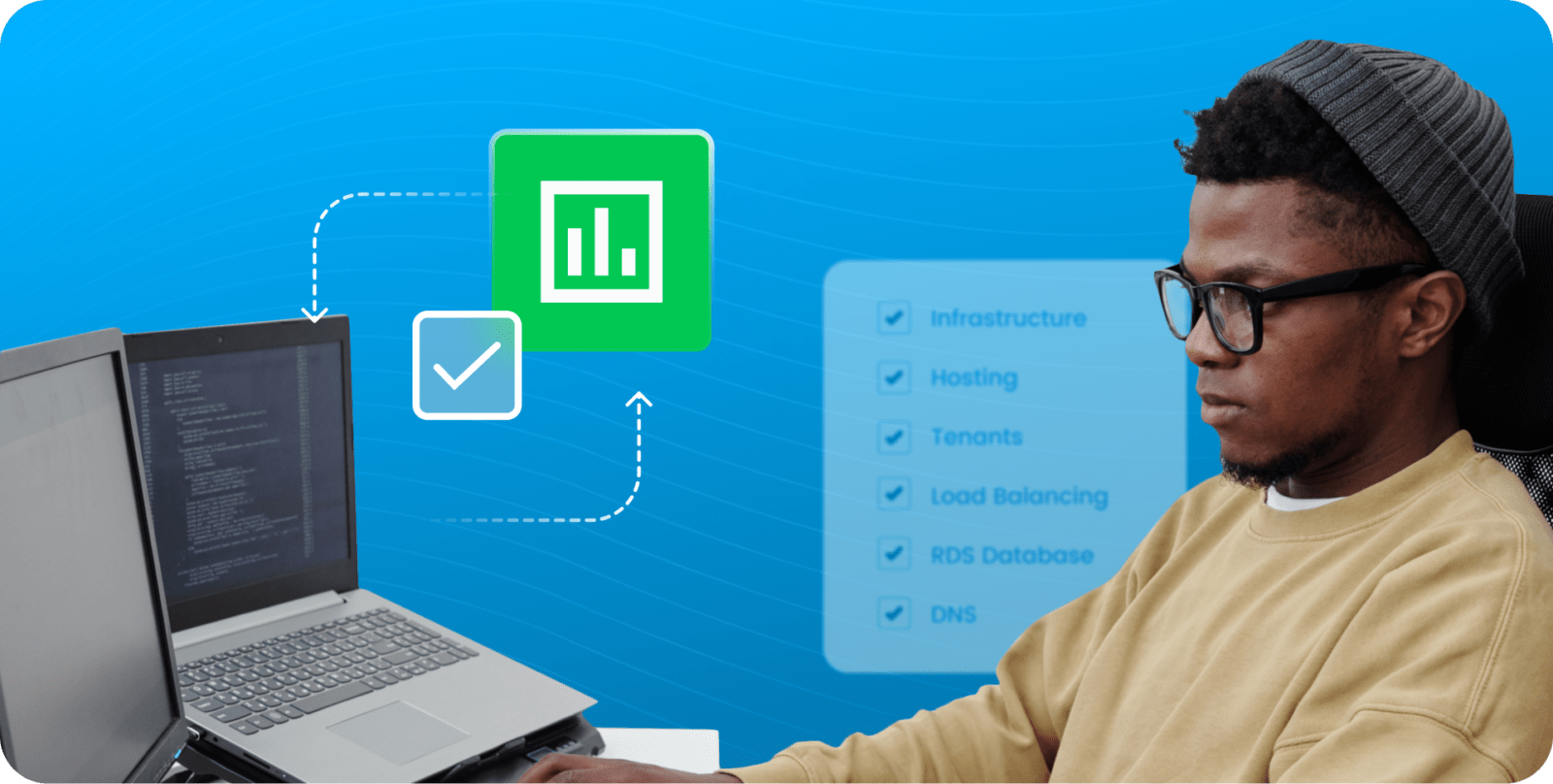This approach integrates security into every stage of the software development life cycle — instead of treating it like an afterthought
Startups and small or medium-sized businesses have a lot to juggle — the pressure is on to get to market as quickly as possible, but glossing over crucial security and compliance steps to speed up launch is a recipe for disaster. DevSecOps is about making security considerations an integral part of the development process early on, so that no stage of application development is isolated from security best practices. In this article, we’ll explore the definition, benefits, and modern importance of this approach to answer the question: What is DevSecOps?
Ready to take your understanding of DevSecOps to the next level? Check out The Comprehensive Guide to DevSecOps.
What Is DevSecOps?
DevSecOps is an integrated IT approach that combines three distinct disciplines: development, security, and operations.
The most important element of a true DevSecOps definition is that it bakes in security at every level of the development lifecycle to achieve its goal of safer software shipped sooner. With a DevSecOps approach in place, security is the shared responsibility of everyone on the development, security, and IT operations teams. This makes security issues easier to identify and fix in the process, long before software ships.
DevSecOps is a dynamic response to the changes brought on by the movement toward cloud-first technology; traditionally structured security teams are ill-equipped to keep pace with development life cycles that reset in a matter of weeks, or even days. Its main goal is to integrate security into every stage of the CI/CD pipeline, delivering secure software at scale without bottlenecking progress or slowing down the development cycle.
DevSecOps vs DevOps: What’s the Difference?
Although they are often conflated as interchangeable terms, there are key differences between DevOps and DevSecOps. The most important and obvious differentiator is the role of security. DevOps unites development and operations teams around a single collaborative methodology to streamline deployment timelines but does not mandate any security procedures. Only DevSecOps extends that collaborative spirit to include security teams and requires security to be part and parcel of every stage of development.
Where DevOps prioritizes speed, DevSecOps is focused on shifting security left, which means locating the identification of security vulnerabilities as early as possible in the development lifecycle. Rather than positioning the two as alternative approaches, it’s more helpful to understand DevSecOps as an evolution of DevOps; DevSecOps keeps pace with the shorter cycles that DevOps unlocks while also rising to the challenge of today’s increasingly sophisticated cyber attacks.
Why Is DevSecOps Important?
In today’s business landscape, digital transformation is a game changer. Migration to the cloud makes cyber threat defense essential — and adding security as an afterthought, at the end of the software development life cycle, cancels out all the benefits of a collaborative approach. Forcing security teams to retroactively fix issues stretches the shorter life cycle achieved through DevOps into a long and drawn-out process.
DevSecOps is also of critical importance in specific industries, where inherent security risks and regulatory compliance issues make it dangerous to adopt any approach other than DevSecOps:
Finance
Because of the large financial stakes and the trend toward disruption, the financial sector has been one of the leading targets for cyber attacks in recent years. A DevSecOps approach helps keep both company and consumer data secure in every development environment so that companies can remain PCI-compliant.
Government
Although government entities aren’t attacked as often as other private sector industries, the post-attack damage is often worse. Whether for political gain or pure profit, cyber attacks on worldwide governments can have huge impacts on individual citizens, critical infrastructure, and global economies alike.
Healthcare
Safeguarding patient-protected health information (PHI) is one of HIPAA’s primary goals. A robust and thorough security approach like DevSecOps makes it easier for companies to stay HIPAA compliant, no matter how much or how quickly they grow.
More than 90% of healthcare industry IT professionals recommend utilizing cloud computing. Read more in our free report, Cloud Computing Adoption in Modern Healthcare:

What Are the Benefits of DevSecOps?
Building a DevSecOps pipeline helps businesses maintain application security posture from end to end. Key benefits of adopting DevSecOps include:
- Stronger security: Auditing, scanning, and testing code, while it’s still in progress, allows DevSecOps teams to find and fix bugs before dependencies are added. This prevents errors and issues from cascading into compounding risks and expanded attack vectors.
- Faster delivery: Developing software without an eye on security leads to huge time delays. It doesn’t matter how fast your development cycle is if the security stage adds weeks or months at the end of the process.
- Reduced costs: In addition to being time-consuming, fixing security issues after the fact is also incredibly costly. Integrating security into the development process eliminates redundancies and reduces unnecessary costs that can add up quickly.
- Enhanced collaboration: Sharing the responsibility of security across every IT team ensures that the entire company is pulling toward the same goal, instead of pitting siloed departments and their competing interests against each other.
- Automation opportunities: Baking security into the CI/CD pipeline allows for automation around standard security checks, compliance issues, etc. This helps create repeatable security processes that can be applied across every environment.
While DevSecOps is a powerful way to increase efficiency and strengthen security with a view on the long term, the last thing startups and small or medium-sized businesses need is to delay their go-to-market timelines with costly tall orders, such as hiring new IT teams or reimagining their strategies.
That’s why having a turnkey solution from a dedicated partner like DuploCloud is essential. Learn how our low-code/no-code automated DevSecOps platform can help your company increase deployment and delivery speeds by 10x and reduce costs by 75%.








